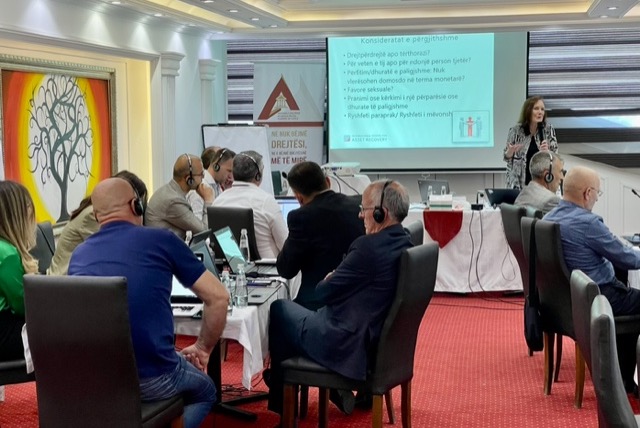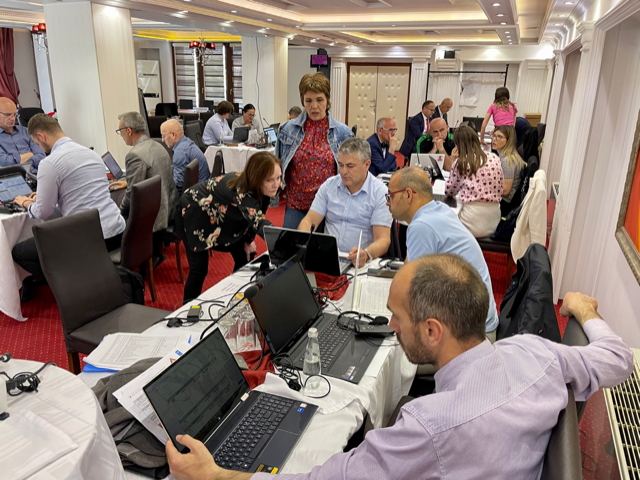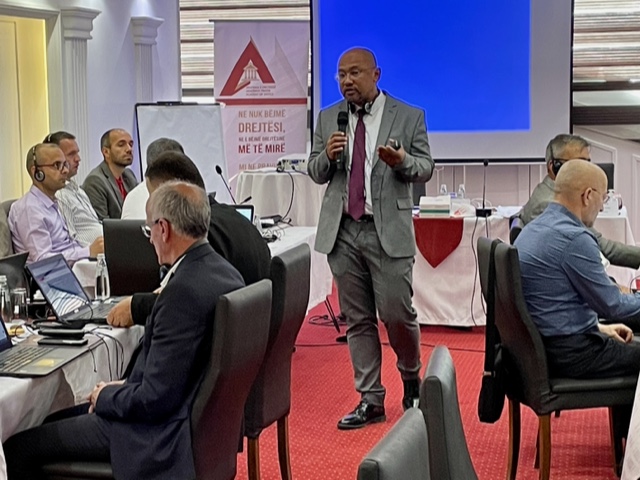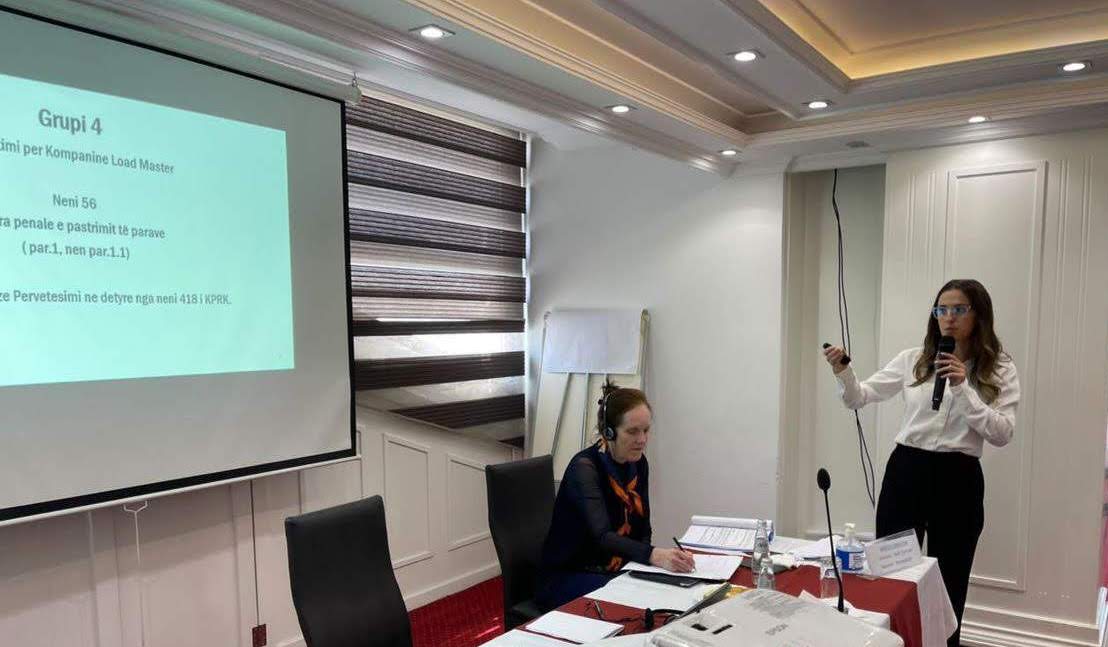Boosting investigation of financial crimes in Kosovo
June 16, 2022

A news article published in the local newspaper talks about a public servant in a senior, decision-making position with significant unexplained wealth. A luxurious villa in the mountains, the latest model sports car and other unaccounted-for financial assets mentioned in the article are enough to raise suspicion and get the authorities involved.
It sounds like the thickening plot of an action film, but it's a hypothetical case of corruption, fraud and embezzlement used in a series of intensive trainings on financial investigations and asset recovery for financial crimes and corruption offenses. The training is delivered to 21 financial investigators, police, prosecutors and judges in Kosovo.
The Training-of-Trainers (ToT) programme is part of UNDP's Support to Strengthening Anti-Corruption Efforts in Kosovo (SAEK III) project, a partnership with the Basel Institute on Governance International Centre on Asset Recovery (ICAR) and Kosovo Academy of Justice.
UNDP’s SAEK III project supports Kosovo in strengthening the detection and prosecution of corruption and financial crime offenses with the aim of improving the return of stolen assets. Once returned to Kosovo’s budget, the illicit assets can be reinvested in the public services that improve people’s lives.

UNDP’s partner, Basel Institute's ICAR developed a tailor-made course using a wealth of fictitious bank statements, financial transactions, e-mails, and newspaper articles through an online platform. It allows participants to unlock documents as each of the groups identifies correct investigative measures to successfully progress with the investigation of the case.
Participants from the police, prosecution, Financial Intelligence Unit and judges work in multidisciplinary teams to uncover evidence, analyze bank statements and financial transactions and draft mutual legal assistance requests and criminal indictments. Each training brings together 20-25 investigators who work throughout the course in small inter-disciplinary groups using specialized investigative skills and legal skills to uncover crimes and locate the stolen assets.

One of the professionals who participated in the first intensive training - of the five that will be held during this year - is Klodina Gashi, a professional associate who's been working for around five years at Pristina Basic Prosecution. She said that although she hasn't had to deal with a similar case in her day-to-day work, the methods used by the trainers were so engaging that they led to quite an extensive understanding of practical processes and procedures for financial investigations and recovery of assets.

Asked what pushed her to participate in the training, she said: "I wanted to learn something new, and I think that it's very important for Kosovo judges, prosecutors, police to possess the knowledge to be able to get to the end of such cases because it's where the issue of unjustified assets of public officials —and their recovery — comes in."
Another legal associate at the Pristina Basic Prosecution, Diora Bajrami, said this is the most intense and engaging training she's participated in during the five years she's worked there in different capacities. "I have conveyed my impressions of this training to the prosecutors with whom I work, and many of them are excited to be part of it in the future because they've seen how useful it has been for me," she said.
Diora is now waiting to be confirmed as a judge, and she highlights the inclusion of different kinds of professionals in the training as a great advantage. "The group work involved officials from each stage of the legal process, so together we used knowledge and skills from each other and successfully solved the case."
The training programme has been adopted by Academy of Justice and has become part of their ongoing training curriculum for judges and prosecutors. The Training-of-Trainers programme identifies skilled professionals from Kosovo’s investigative authorities who are taught and coached on how to deliver this training. By the final fifth workshop, Kosovo’s local trainers will deliver the programme independently, and for years to come, this will be delivered solely through Academy of Justice.
Ramadan Gashi, Permanent Judicial Trainer at the Academy, has lauded the programme for a skillful blend of theoretical explanations and interactive discussions presenting practical cases. "The training programme will increase the professional competence of the participants and I believe will act as a push for participants to apply in practice the same methodology of identifying assets obtained through criminal offenses and to transfer these methods to other law enforcement professionals."
With the support of the Swiss Development Cooperation office in Kosovo and SIDA through the Swedish Embassy in Kosovo, UNDP's SAEK III project supports the strengthening of corruption prevention and suppression measures with an aim to improve the recovery of hidden stolen assets. In partnership with Kosovo’s prosecution services, courts, the Anti-corruption Agency and the Financial Intelligence Unit, UNDP helps develop policies and legislation, digital solutions for monitoring and investigating, certify financial crime investigators, assess structural risks and vulnerabilities and provides support to implementing mitigation measures.
UNDP strives to support the increased detection and prosecution of financial crime and corruption to ensure that all are equal before the law and that stolen assets are returned and reinvested for the good of all people in Kosovo.

 Locations
Locations
